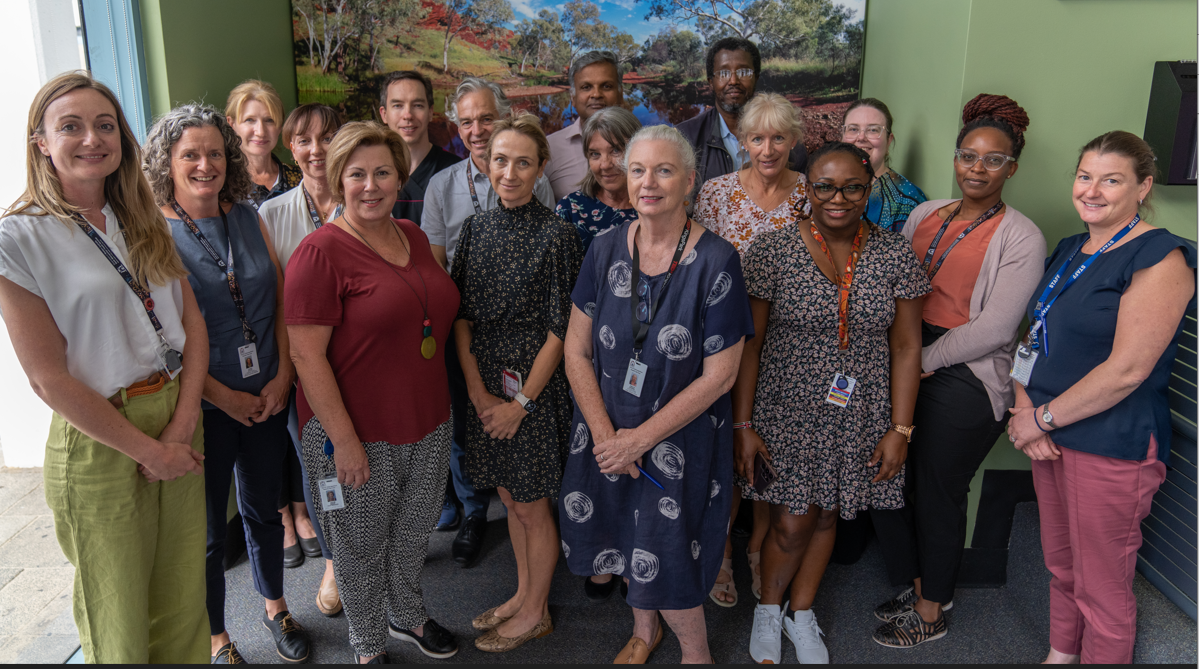World Tuberculosis Day
 WA TB Control Program staff celebrate the 75th anniversary of the service
WA TB Control Program staff celebrate the 75th anniversary of the service
This month staff in Public Health celebrate a milestone 75 years of delivering specialist care to the community, through the WA Tuberculosis Control Program (WATBCP).
Tuberculosis (TB) continues to be one of the most common communicable diseases worldwide and the second most fatal infectious disease, after Covid-19.1
Throughout the pandemic, as resources were diverted to Covid-19, TB deaths increased around the world.2 In WA however, locked borders and sustained health care resulted in the prevalence of TB decline. But as global travel and trade returns to pre-pandemic levels, so too does the risk of transmission and the need for sustained surveillance, prevention and control.
TB is an infection caused by bacteria, usually affecting the lungs. While not as infectious as Covid-19, TB is spread in a similar way through the air. People who have had prolonged exposure to a person who is sick with TB, who may be coughing or sneezing for example are most at risk.3
The WA TB Control Program provides a statewide public health service, to those at risk of developing TB, newly diagnosed TB cases and people who have been in contact with cases. Based at the Anita Clayton Centre in Perth, the service provides medical assessment, testing, case management, expert advice and contact tracing services. All patients diagnosed with TB in WA are supported by a TB case manager and specialist physician who provide comprehensive patient-centred care for a period of six to 24 months.
World TB Day (March 24) is an opportunity to stop and think about the impact of TB in the world. This year the theme is 'Yes! We can end TB!' to highlight the United Nation’s Sustainable Development Goal, to End TB by 2030.
Clinical Nurse Specialist, Public Health, Alex Truelove said with access to quality healthcare, TB is preventable and curable.
"People don't hear a lot about TB in WA because it is well controlled and affects relatively few," Ms Truelove said.
"The truth is, TB does not discriminate. Anyone who has lived or travelled to endemic countries can get TB.
"What's important here and everywhere, is to enable the work of the teams behind the scenes to continue to provide high quality care.
"TB is well controlled in WA because our system provides the resources required, for example specialist staff, free medication and detailed contact tracing to minimise and contain the spread of the disease."
Ms Truelove also said the team work hard to raise awareness of TB by providing education to the public and fellow health colleagues.
"In Australia where TB is well controlled, we are focussed on achieving 'zero transmission' through testing and preventive treatment," Ms Truelove said.
For more information about the program visit the WA Tuberculosis Control Program.
1 "Tuberculosis." World Health Organization (external site) October 27, 2022.
2 "Tuberculosis Deaths Rise for the First Time in More than a Decade due to the COVID-19 Pandemic." World Health Organization (external site) October 14, 2021.
3"Tuberculosis." HealthyWA (external site)

